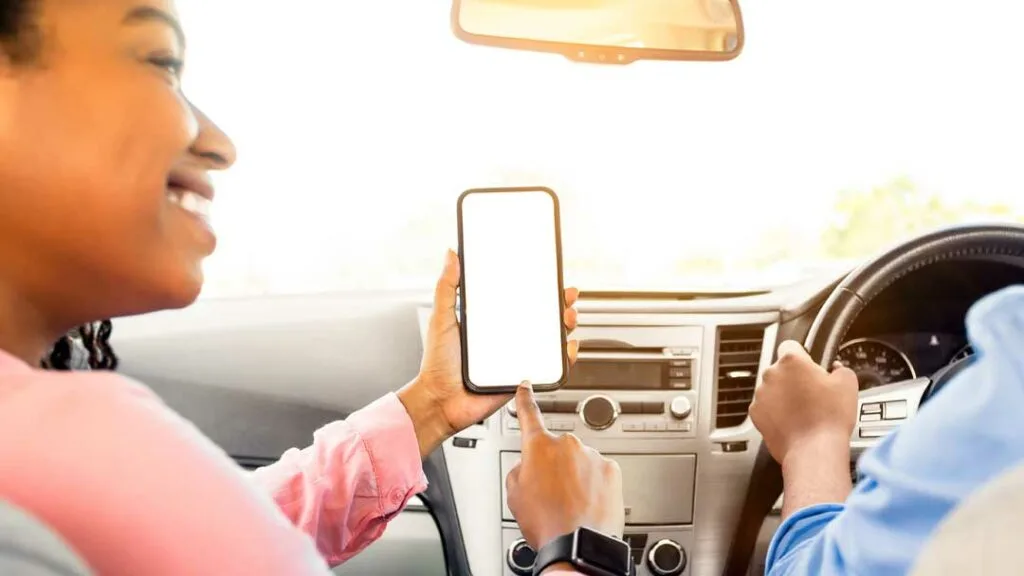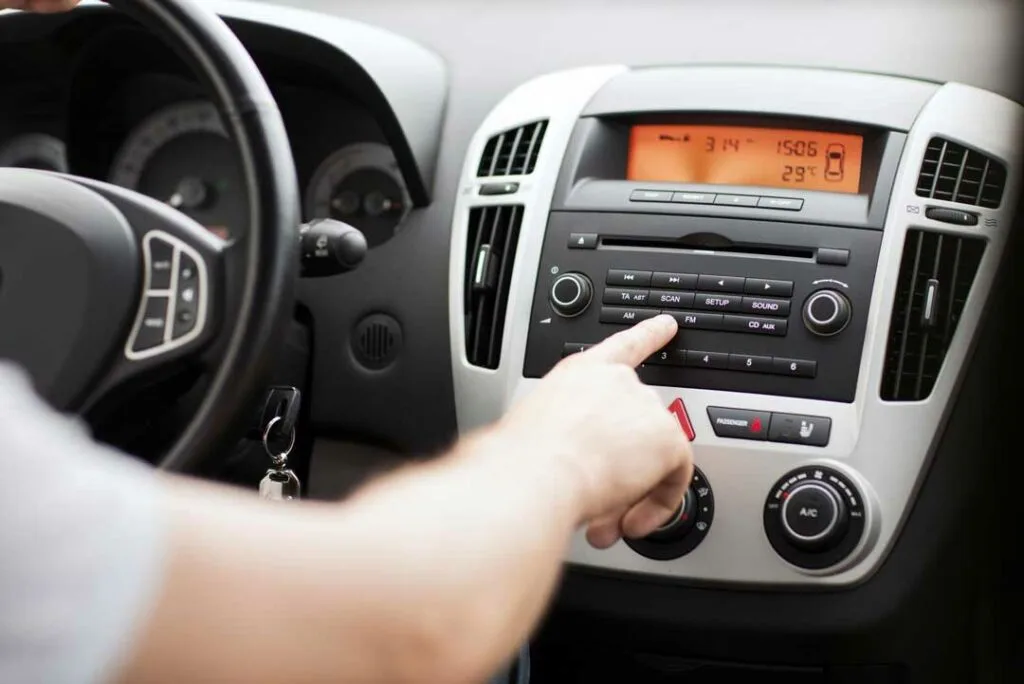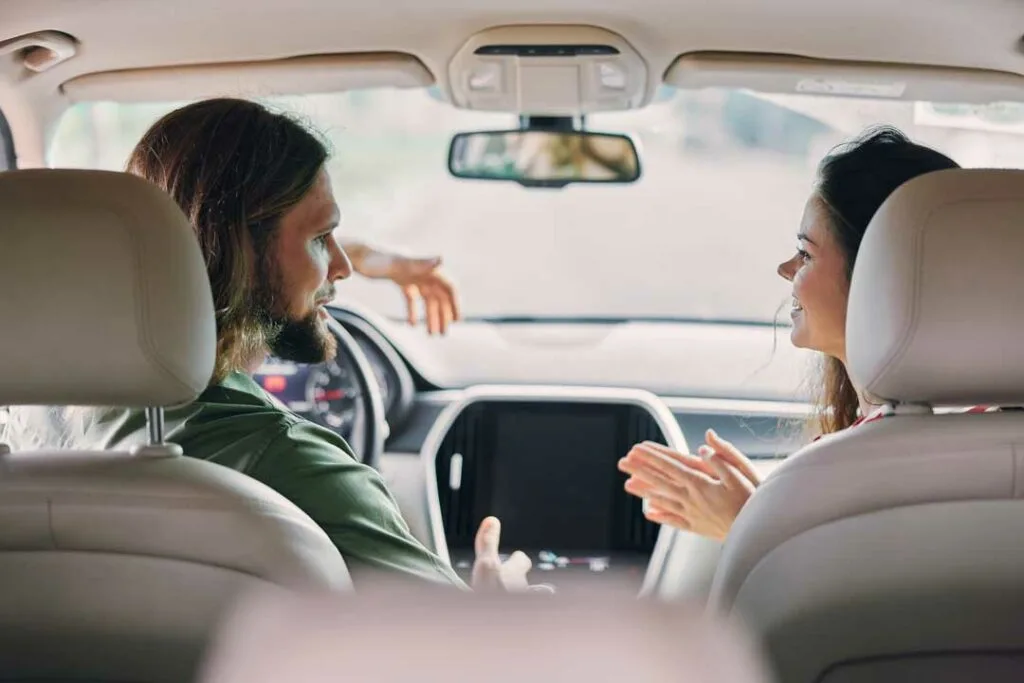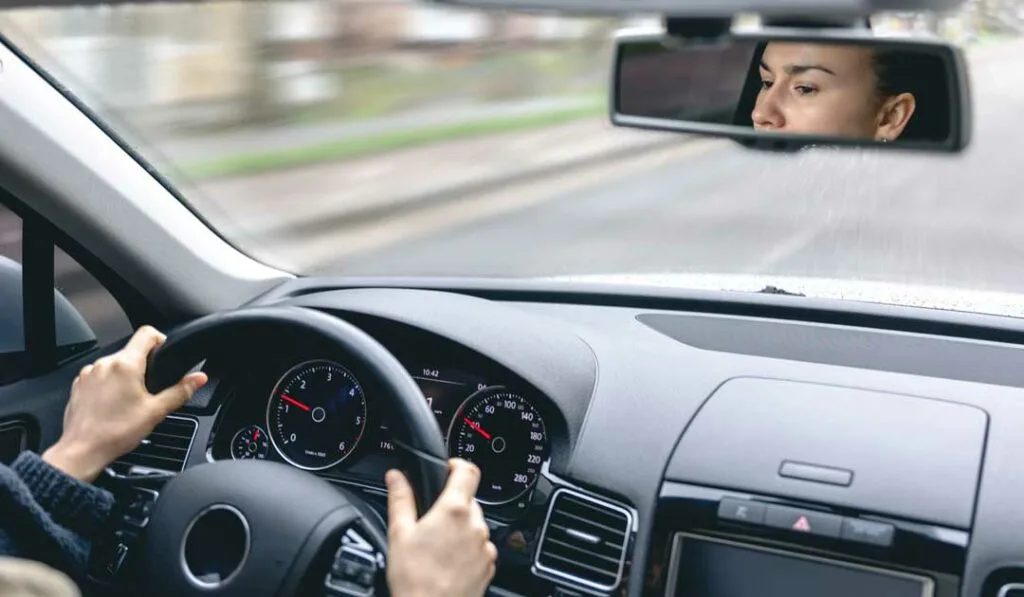Distracted driving and music may seem harmless, but even small distractions behind the wheel can have serious consequences. Here’s what every driver needs to know.

We all listen to music, talk with passengers, or play podcasts while driving. These activities feel like normal parts of everyday driving—ways to make our commute more enjoyable or pass time during long trips. However, what seems harmless can actually affect how focused we are behind the wheel in ways we don’t always realize.
How Distracted Driving and Music Impact Road Safety
Understanding how music and driving focus work together, and when audio content becomes a form of distracted driving, can help us make smarter choices about what we listen to and how we interact while on the road.
Music and Driving Focus
Music affects driving in different ways depending on the type of music, volume level, and how much attention it demands from the driver. Fast-paced or very loud music can unconsciously encourage drivers to speed up, matching their driving rhythm to the beat of the song.

Heavy metal, electronic dance music, or rap with aggressive lyrics may increase adrenaline levels and lead to more aggressive driving behaviors, such as tailgating or taking unnecessary risks.
On the other hand, very calm or slow music can sometimes cause the opposite problem. Soft, soothing music might help reduce road rage and driving stress, but it can also make drivers feel too relaxed or even drowsy. This combination of music and diminished driving focus can lead to daydreaming, slower reaction times, or difficulty staying alert during long drives.
Perhaps the biggest distraction comes from constantly changing songs while driving. Reaching for the radio, scrolling through playlists on your phone, or arguing with passengers about what to play next takes your hands off the wheel and your eyes off the road.
Even voice-activated music controls can become a form of distracted driving if you’re spending mental energy thinking about song choices instead of focusing on traffic conditions. If you’ve been involved in an accident where distracted driving was a factor, a Bronx car accident attorney can help you understand your legal options and pursue the compensation you may be entitled to.
Podcasts and Mental Distraction
Podcasts present a unique challenge for music and driving focus because they require more mental processing than simple background music. True crime podcasts with complex storylines, political discussions, or emotional personal stories can pull your attention away from driving as your brain becomes absorbed in following the narrative. Your mind might become so engaged with trying to solve a mystery or understand a complicated topic that you stop paying full attention to the road.

Educational podcasts or comedy shows can also become forms of distracted driving when the content is particularly engaging or thought-provoking. You might find yourself thinking deeply about what you’re hearing instead of monitoring traffic, checking mirrors, or watching for pedestrians. Even though you’re not physically looking at a screen, this mental distraction can be just as dangerous as visual distractions.
However, not all podcasts contribute to distracted driving equally. Light entertainment, familiar topics, or content you’ve heard before may be less mentally demanding and therefore safer to listen to while driving. The key is being honest about how much mental energy the content requires and whether it’s pulling your focus away from safe driving.
Conversations Inside the Car
Talking with passengers is one of the most common activities that affects music and driving focus, though many people don’t think of it as distracted driving. Conversations with children can be particularly distracting because kids often ask questions that require immediate responses, point out things they see outside the car, or create noise and commotion that demands parental attention. Even simple requests like “Can you turn up the music?” or “Are we there yet?” can momentarily shift your focus away from driving.
Emotional or heated conversations with adult passengers can become serious forms of distracted driving. Arguments, discussions about relationship problems, or conversations about stressful topics like work or finances can cause drivers to become emotionally engaged and mentally distracted.

When you’re upset, angry, or deeply focused on personal problems, your ability to react quickly to road hazards decreases significantly.
Even hands-free phone calls, which many people consider safer than handheld calls, can reduce reaction time and increase the risk of accidents. Your brain has to divide attention between processing conversation and monitoring driving conditions, and this mental multitasking can slow your responses to unexpected situations on the road.
Tips to Stay Safe
To minimize distracted driving while still enjoying audio content, keep your music or podcast volume at a level where you can still hear important sounds like sirens, car horns, or screeching brakes. Choose your music or podcast before you start driving, and avoid changing content while the vehicle is in motion.

Be mindful of the type of content you choose for different driving situations. Save emotionally engaging podcasts or complex educational content for times when you’re not driving, or for very familiar, low-traffic routes. For challenging driving conditions like heavy traffic, bad weather, or unfamiliar areas, consider keeping audio content minimal or turning it off entirely.
Avoid starting emotional or serious conversations while driving, and ask passengers to help you stay focused by keeping discussions light and avoiding distracting behaviors. If you find yourself getting deeply absorbed in what you’re listening to or discussing, take a break to refocus on driving.
The Real Risks of Distracted Driving and Music, Podcasts, and Conversations
Music, podcasts, and conversations are natural parts of most driving experiences, and they don’t have to be eliminated entirely. However, understanding how these activities can contribute to distracted driving helps us make better choices about what we listen to and how we interact while behind the wheel. Being aware of when audio content or conversations are pulling your attention away from safe driving is the first step in preventing accidents. Music, podcasts, and conversations are a part of every drive—but staying alert is key. A small distraction can lead to a big mistake. Be aware, and stay safe.

Jessi is the creative mind behind The Coffee Mom, a popular blog that combines parenting advice, travel tips, and a love for all things Disney. As a trusted Disney influencer and passionate storyteller, Jessi’s authentic insights and relatable content resonate with readers worldwide.
